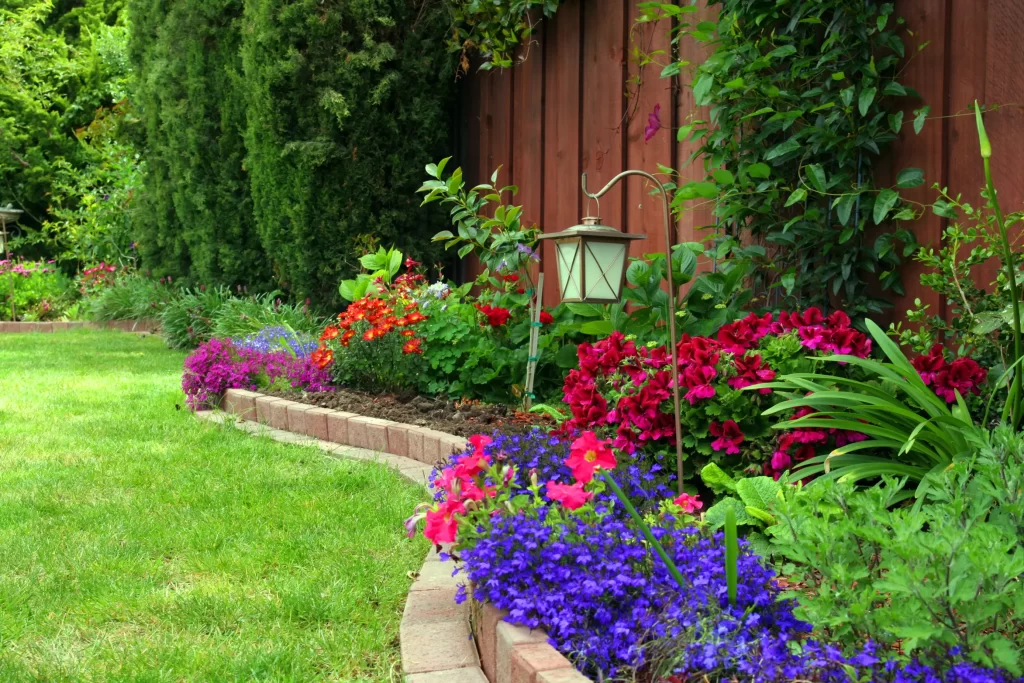Harmonizing Nature and Architecture: The Art of Natural Stone Wall Gardens

Natural stone wall garden (Natursteinmauer Garten) exemplify the seamless integration of nature’s beauty with architectural design, creating striking landscapes that harmonize with their surroundings. These versatile garden features not only enhance the aesthetic appeal of outdoor spaces but also provide structural support, soil retention, and ecological benefits that contribute to sustainable landscaping practices. Whether used to define boundaries, create terraced levels, or showcase garden focal points, natural stone walls represent an artful blend of craftsmanship, functionality, and environmental stewardship.
1. Capturing Natural Beauty
Natural stone wall gardens capture the essence of natural beauty through their organic textures, earthy colors, and inherent variations. Each stone is unique, adding a sense of authenticity and timelessness to outdoor environments. Whether crafted from limestone, sandstone, or granite, these natural materials reflect the geological history of their region, connecting garden spaces with the surrounding landscape in a meaningful way.
2. Structural Integrity and Versatility
Beyond their aesthetic appeal, natural stone walls offer robust structural integrity and design versatility. They serve practical purposes such as retaining soil on slopes, creating raised planting beds, or defining garden pathways. The strength and durability of natural stone ensure long-term stability, even in challenging environmental conditions, making them a reliable choice for both residential and commercial landscaping projects.
3. Environmental Sustainability
The use of natural stone in garden design promotes environmental sustainability by minimizing the carbon footprint associated with synthetic building materials. Locally sourced stones reduce transportation emissions and support regional economies, while their permeable nature allows for water infiltration and soil retention. Natural stone walls contribute to sustainable urban drainage systems (SUDS), mitigate erosion, and create habitats for beneficial wildlife, fostering biodiversity within urban landscapes.
4. Integration with Architectural Elements
Natural stone walls seamlessly integrate with architectural elements to enhance outdoor living spaces. They can be incorporated into garden terraces, seating areas, or decorative features that complement the style and character of residential homes or commercial properties. Whether used as a backdrop for outdoor kitchens, fire pits, or water features, natural stone walls add depth and visual interest to architectural designs while creating cohesive outdoor environments.
5. Design Principles and Considerations
Designing natural stone wall gardens involves thoughtful planning and consideration of site-specific factors:
- Site Assessment: Evaluate terrain, soil conditions, and drainage patterns to determine the optimal placement and function of stone walls within the landscape.
- Material Selection: Choose natural stones that harmonize with existing architecture and natural surroundings, considering factors such as color, texture, and scale.
- Craftsmanship: Employ skilled craftsmanship and proper construction techniques to ensure structural integrity and aesthetic coherence throughout the project.
- Planting Integration: Select plantings that thrive in the microclimatic conditions created by stone walls, enhancing biodiversity and ecological resilience within the garden.
6. Maintenance and Long-Term Care
Maintaining natural stone wall gardens involves periodic inspections for structural stability, cleaning to remove debris or vegetation growth, and occasional repointing of mortar joints as needed. Regular maintenance ensures that stone walls retain their aesthetic appeal and functionality over time, preserving their contribution to the overall beauty and sustainability of outdoor spaces.
In conclusion, natural stone wall gardens represent an artful synthesis of nature and architecture, blending aesthetic beauty with functional purpose in outdoor landscape design. Their enduring appeal, structural reliability, and ecological benefits make them a preferred choice for enhancing residential gardens, commercial landscapes, and public spaces alike. By harmonizing natural materials with architectural form, natural stone walls contribute to sustainable living environments that celebrate the timeless union of human creativity with the beauty of the natural world.





